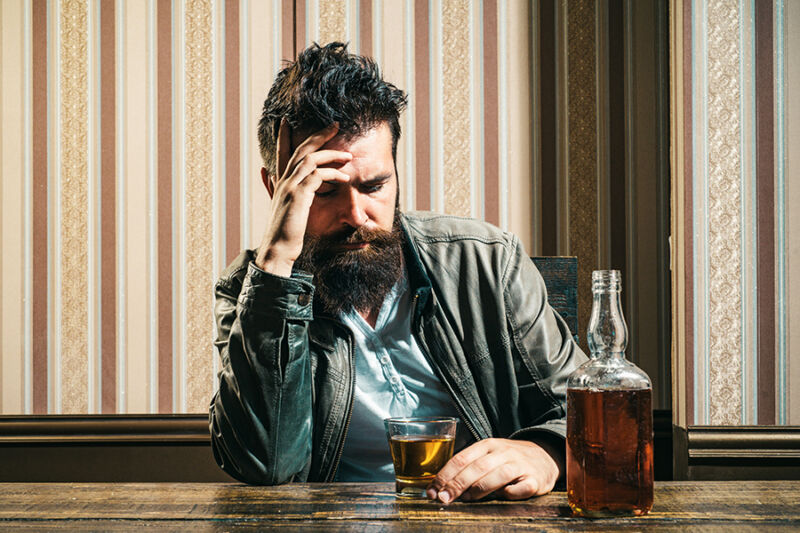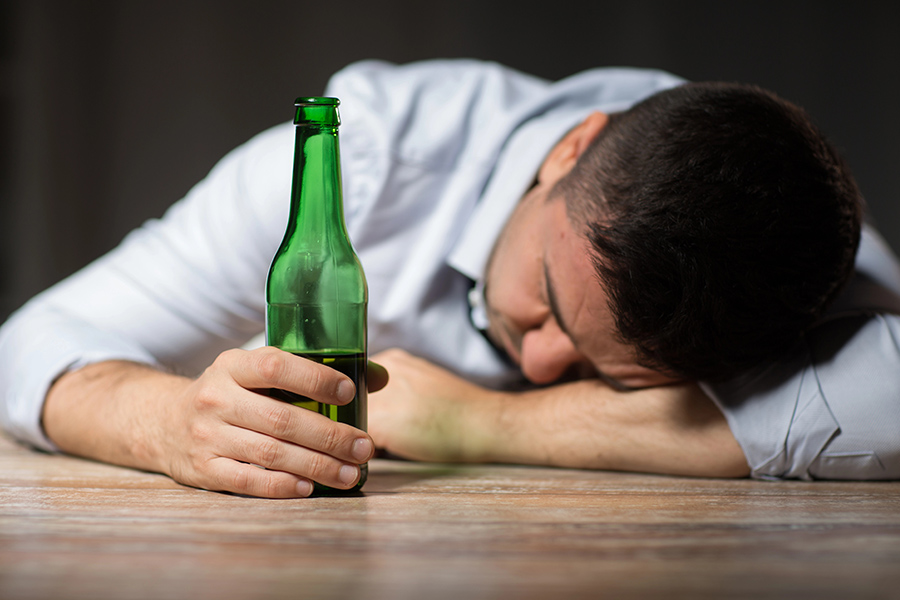Understanding the alcohol relapse rate is crucial for individuals and families affected by alcoholism. Recognizing the warning signs and understanding the complexities of alcohol dependence and alcohol abuse can help in creating effective relapse prevention plans and maintaining sobriety. This knowledge can empower those in recovery to better navigate their journey and support long-term recovery efforts.
If you or a loved one need help, call us at 602-466-9880 to get started, or click here to use your insurance benefits to pay for treatment.

BEGIN YOUR RECOVERY TODAY!
We can help you achieve permanent sobriety that gives you your life back. Call to learn more about our therapy options in Phoenix, AZ.
Alcohol Relapse Statistics
The term “relapse rate” refers to the percentage of individuals who return to drinking alcohol after a period of abstinence. Relapse is a common part of the recovery process, indicating that alcohol addiction and alcohol use disorder are chronic diseases that require ongoing management. Understanding alcohol relapse statistics, including the relapse rate after alcohol rehab, is essential for developing effective treatment plans and relapse prevention strategies.
The National Institute on Alcohol Abuse and Alcoholism (NIAAA) reports that nearly 90% of people who have battled alcohol addiction will encounter at least one relapse over the course of their lives.
What is the Percentage of Relapse in Alcoholics?
Alcohol relapse rates vary, but research shows that a significant number of individuals experience a relapse within the first year of recovery. Specifically, the percentage of alcoholics who relapse is highest within the first three months of treatment, according to the National Institute on Alcohol Abuse and Alcoholism. These statistics underscore the importance of comprehensive care and support systems to help individuals maintain sobriety.
Relapse Rates for Alcohol Addiction – Detailed Statistics
Short-Term vs. Long-Term Relapse Rates
Short-term relapse rates are highest within the first year of recovery, with a significant drop-off in subsequent years. Long-term relapse rates, however, indicate that vigilance is required even after years of sobriety. Monitoring drinking patterns and maintaining a strong support network are vital for long-term recovery.
Relapse Rates by Demographics
Relapse rates can vary by demographics such as age, gender, and socio-economic status. For instance, younger individuals and those with lower socio-economic status often experience higher relapse rates. Understanding these variations helps tailor treatment plans to individual needs.
Comparison with Other Addictions
When comparing relapse rates for alcohol addiction with other substance addictions, it is clear that alcohol use disorder presents unique challenges. The prevalence of alcohol in social settings and the legal status of alcohol make it particularly difficult to avoid. This underscores the importance of comprehensive alcohol treatment programs that address both the physical and social aspects of alcohol misuse.

Why Do Alcoholics Relapse?
Triggers and High-Risk Situations
Common triggers for alcohol relapse include high-risk situations such as stress, social gatherings where alcohol consumption is prevalent, and exposure to environments associated with previous drinking patterns. Recognizing these triggers is a crucial step in minimizing the alcohol relapse rate.
- Stress: Everyday stressors, such as work pressure, financial difficulties, and family issues, can create intense cravings for alcohol. Stress management techniques, such as mindfulness meditation, exercise, and healthy coping strategies, are essential in managing these triggers.
- Social Gatherings: Social gatherings where alcohol consumption is prevalent pose a high risk for individuals in recovery. Parties, family celebrations, and other events often involve drinking alcohol, making it challenging for recovering alcoholics to resist the temptation.
- Environmental Cues: Environments associated with previous drinking patterns can also trigger relapses. Returning to places where one used to drink, such as bars, restaurants, or even certain areas of their home, can evoke strong memories and cravings. Avoiding these places and creating new, alcohol-free environments are vital steps in the recovery process.
Psychological and Emotional Factors
Mental health issues such as depression and anxiety play a significant role in alcohol relapses. Emotional relapse, characterized by feelings of low self-efficacy and emotional instability, often precedes physical relapse. Addressing comorbid mental health disorders is essential for a successful recovery.
- Depression and Anxiety: Depression and anxiety are common among individuals with alcohol use disorder. These conditions can lead to emotional distress, which in turn triggers alcohol cravings.
- Emotional Relapse: Emotional relapse involves returning to unhealthy emotional patterns that existed before recovery. Signs of emotional relapse include mood swings, isolating oneself from support systems, and neglecting self-care.
Lack of Support Systems
The lack of a robust support system is another major factor contributing to the risk of relapse. Support groups, such as Alcoholics Anonymous (AA), provide valuable peer support that can help individuals stay sober. Engaging in ongoing therapy and attending support group meetings are critical components of a relapse prevention plan.
Strategies to Prevent Relapse
Comprehensive Treatment Plans
A personalized and comprehensive treatment plan is essential for preventing alcohol relapse. Camelback Recovery offers a variety of treatments, including medication-assisted treatment, to support individuals in their recovery process.
Aftercare Programs
Aftercare programs play a critical role in sustaining recovery. Effective aftercare involves ongoing therapy, regular check-ins, and continuous support to reinforce coping strategies and address any emerging challenges.
Support Groups and Counseling
Joining support groups such as AA provides a community of individuals who understand the challenges of alcohol addiction. Ongoing counseling helps address underlying issues and develop strategies to prevent relapse.
Healthy Lifestyle Choices
Adopting healthy lifestyle choices, such as regular exercise, balanced nutrition, and effective stress management, can significantly reduce the risk of relapse. Building new, healthy habits helps individuals remain sober and enjoy a higher quality of life.

Camelback Recovery’s Approach to Managing Relapse
Holistic Treatment Philosophy
Camelback Recovery embraces a holistic approach to treatment, addressing both the physical and emotional aspects of alcohol addiction. This comprehensive method is crucial for achieving long-term sobriety and preventing relapse.
Integrated Mental Health Services
By integrating mental health services into their programs, Camelback Recovery ensures that comorbid mental health disorders are treated alongside alcohol addiction. This integrated approach is essential for a successful recovery.
Personalized Care Plans
Each individual receives a personalized care plan tailored to their specific needs. These plans are continuously adjusted based on progress and emerging challenges, ensuring the most effective treatment.
Ongoing Support and Monitoring
Continuous support and monitoring are provided to help individuals maintain sobriety. Camelback Recovery’s dedicated team is committed to offering the necessary support to prevent alcohol relapse and encourage a successful recovery.
Prevent Alcohol Relapse By Seeking Treatment at Camelback Recovery
Recovery from alcohol addiction is a challenging journey, but it is achievable with the right support and strategies. Understanding the alcohol relapse rate and knowing how many alcoholics relapse can help in implementing effective prevention plans, which can significantly increase the chances of long-term sobriety.
If you or a loved one is struggling with alcohol addiction, Camelback Recovery, a leading mental health clinic and addiction treatment center in Phoenix, AZ, is here to help. Our comprehensive treatment programs and dedicated support can guide you through your recovery process. Contact us today at 602-466-9880 to start your journey towards a healthier, sober life.





